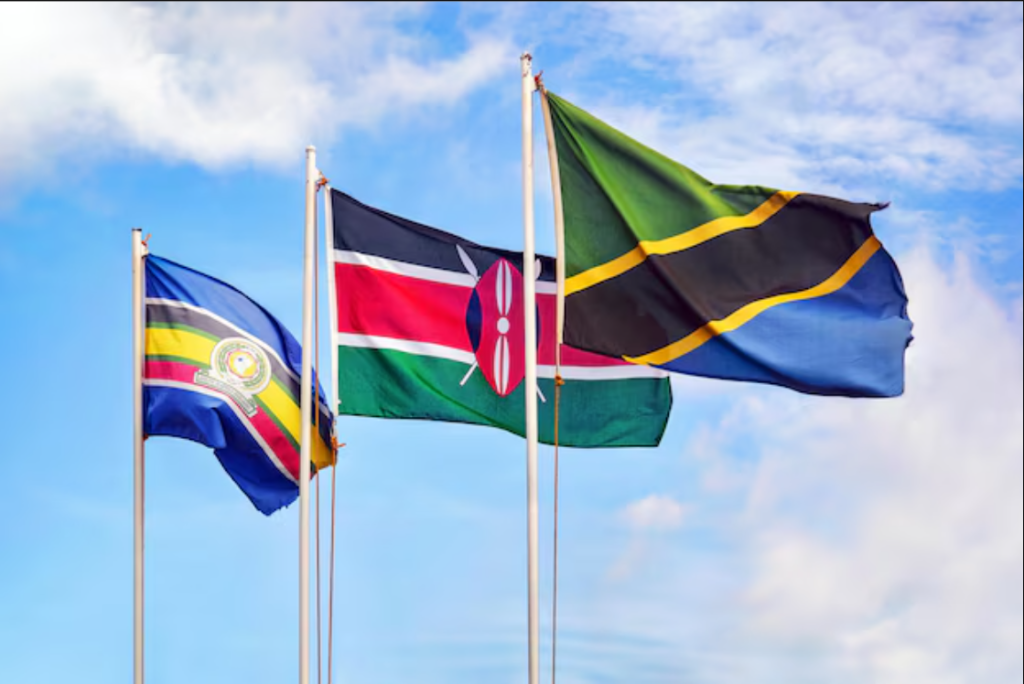This article delves into Tanzania’s agricultural, manufacturing, and services sectoral performance, highlighting its economic standing within the East African Community (EAC).
Using the EAC Statistics Quarterly Bulletin, we shall analyse how these sectors contribute to Tanzania’s economic stability compared to its EAC counterparts. We will assess each sector’s role in employment, value addition, and overall growth, emphasizing Tanzania’s relative strengths and areas for improvement in the regional landscape.
Agriculture remains the backbone of Tanzania’s economy, contributing significantly to GDP, employment, and export earnings.
The sector employs about 65-70% of the Tanzanian population and is crucial in food security and poverty reduction. Key agricultural products include maize, rice, coffee, tea, cashew nuts, and cotton, vital for domestic consumption and exports.
Comparison With Other EAC Countries:
- Kenya: While also heavily dependent on agriculture, Kenya has a more diversified agricultural sector with significant contributions from floriculture and tea exports.
- Uganda: Focuses on coffee, which remains a major export earner, alongside other crops like maize and beans.
- Rwanda and Burundi: Both have smaller agricultural outputs but rely heavily on subsistence farming and cash crops like tea and coffee.
Tanzania’s relatively stable climate and large arable land area give it a competitive edge, positioning it as a key agricultural hub within the EAC.
Also, read The East African Community: The Sleeping Economic and Energy Giant in the Making
However, challenges like limited irrigation infrastructure and dependence on rainfall can hinder productivity compared to countries like Kenya, which have invested more in agricultural technology.
Growth in Manufacturing Outputs and Industrial Activities in Tanzania
Tanzania’s manufacturing sector is steadily growing, contributing around 8-10% to the nation’s GDP.
The government’s industrialization agenda focuses on increasing the production of textiles, cement, and processed foods. This sector’s growth is supported by investments in Special Economic Zones (SEZs) and Industrial Parks designed to attract local and foreign investors.
- Kenya: Has a more advanced manufacturing sector, contributing about 11% to GDP, driven by agro-processing, cement, and steel production.
- Uganda: Focuses on Agro-processing and light manufacturing, with a gradual shift towards developing industrial capacity.
- Rwanda: Has smaller-scale manufacturing focused on construction materials, textiles, and food processing, supported by government incentives.
Tanzania’s manufacturing sector benefits from a stable supply of raw materials, particularly from its agricultural and mining sectors. This vertical integration supports the production of value-added goods, reducing the dependency on imported products and enhancing its competitive position within the EAC.
Expansion of service sectors like finance and tourism in Tanzania compared to EAC averages
The services sector in Tanzania, particularly finance, tourism, and information technology, plays a crucial role in driving the country’s economic growth.
Tourism, in particular, is a significant contributor to GDP, driven by Tanzania’s natural attractions like Serengeti National Park, Mount Kilimanjaro, and Zanzibar’s beaches. The sector experienced a notable rebound post-pandemic, with increasing numbers of international visitors boosting revenue.
- Kenya: Leads the region in the services sector, with Nairobi as a financial hub and a strong focus on tourism and technology services.
- Uganda Is steadily growing its service sector, with financial services and tourism seeing consistent development.
- Rwanda: Has positioned itself as a regional conference and business hub, attracting investment in hospitality and fintech.
Tanzania’s financial sector is also expanding, with reforms to improve financial inclusion and access to credit for small businesses. Efforts to modernize banking and embrace digital financial services are helping bridge the gap with regional leaders like Kenya. The focus on tourism as a cornerstone of the service sector remains vital as Tanzania continues to enhance its infrastructure and marketing strategies to attract more tourists and investment.
The following advice aims to provide actionable insights into Tanzania’s economic position compared to its peers.
- Advice to policymakers: Prioritize investment in agricultural technology and infrastructure to boost productivity. Despite being a leader in agriculture within the EAC, Tanzania can enhance its competitive edge by addressing challenges like irrigation, storage facilities, and market access to improve value addition and food security.
- Advice to investors: Tanzania’s manufacturing sector presents significant growth potential, particularly in agro-processing and light manufacturing. Investors should leverage the country’s raw material base to develop industries that can cater to both domestic needs and regional export demands.
- Advice to stakeholders: Encourage initiatives that promote skills development in the manufacturing and services sectors. Building a skilled workforce is crucial to support industrialization and the growth of emerging sectors like information technology and tourism.
Tanzania’s sectoral agriculture, manufacturing, and services performance is pivotal for its economic stability and growth within the EAC.
While agriculture remains the foundation, significant strides in manufacturing and services indicate a shift toward a more diversified economy.
Compared to its regional peers, Tanzania holds a competitive edge in natural resources and agricultural production but has further opportunities to develop its manufacturing capabilities and service industries.
Focusing on these sectors’ growth and integration within the EAC economic framework will enable Tanzania to enhance its economic resilience, reduce poverty, and sustain long-term development.
Continued investment in infrastructure, innovation, and cross-border trade will be essential for Tanzania to solidify its role as a key player in the East African economic landscape.


I just wanted to express my gratitude for the valuable insights you provide through your blog. Your expertise shines through in every word, and I’m grateful for the opportunity to learn from you.